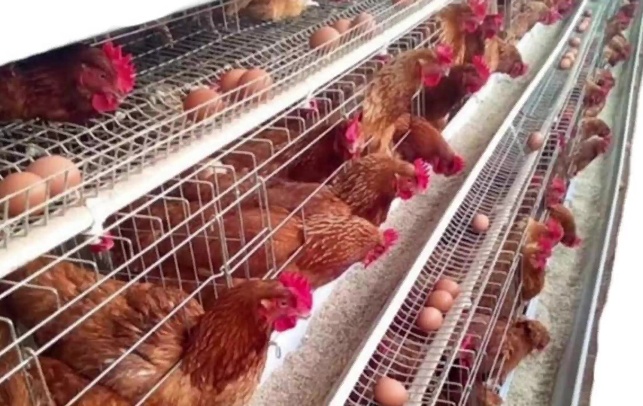Chicken Cages For Sale/Factors When Buying Chicken Cages
2024-06-07
Investing in quality chicken cages is essential for poultry farmers looking to optimize their operations and ensure the well-being of their birds. When considering chicken cages for sale, there are several important factors to take into account to make an informed decision that meets the needs of your poultry operation. In this guide, we will explore key factors to consider when buying chicken cages to help you choose the right equipment for your farm.
1. Cage Type and Design
a. Battery Cages:
Battery cages are a common type of chicken housing system that consists of multiple tiers or levels of cages stacked on top of each other. When choosing battery cages, consider the design features such as cage size, spacing between bars, and access to feeders and waterers. Opt for cages that provide ample space for the birds to move comfortably and access to essential resources.
b. Colony Cages:
Colony cages are larger, furnished enclosures that allow for more space and environmental enrichment compared to traditional battery cages. When selecting colony cages, look for features such as perches, nesting boxes, and scratching areas to promote natural behaviors and improve bird welfare. Consider the size and layout of the colony cages to ensure optimal comfort and productivity for the birds.
2. Material Quality and Durability
Choose chicken cages made from high-quality materials such as galvanized steel or corrosion-resistant plastic to ensure durability and longevity. The cages should be sturdy, easy to clean, and resistant to rust and corrosion. Investing in durable cages will help you avoid frequent replacements and maintenance costs, ensuring a long-lasting and reliable housing solution for your poultry.

3. Ventilation and Air Quality
Proper ventilation is crucial for maintaining good air quality and temperature control inside the chicken cages. Look for cages with adequate ventilation openings or fans to ensure proper airflow and prevent heat stress or respiratory issues among the birds. Good ventilation also helps reduce ammonia levels and humidity, creating a healthier environment for the chickens.
4. Cleaning and Maintenance
Consider the ease of cleaning and maintenance when choosing chicken cages. Select cages with removable trays or droppings belts for easy waste removal and cleaning. Smooth surfaces, rounded edges, and accessible components make it easier to sanitize the cages and prevent the buildup of dirt and bacteria. Prioritize hygiene and cleanliness to promote bird health and productivity.
5. Bird Comfort and Welfare
Ensure that the chicken cages provide a comfortable and enriching environment for the birds. Consider features such as perches, nesting boxes, and litter areas to support natural behaviors and enhance bird welfare. Adequate space, proper lighting, and access to food and water are essential for the well-being of the chickens. Choose cages that prioritize bird comfort and behavioral needs.
6. Cost and Return on Investment
Evaluate the cost of the chicken cages in relation to the quality, features, and benefits they offer. Consider the long-term return on investment, taking into account factors such as durability, productivity gains, and operational efficiency. While upfront costs are important, it is essential to choose cages that provide value for money and contribute to the overall success and profitability of your poultry operation.
Conclusion
When buying chicken cages for your poultry farm, it is crucial to consider factors such as cage type and design, material quality, ventilation, cleaning and maintenance, bird comfort, and cost-effectiveness. By prioritizing bird welfare, hygiene, durability, and operational efficiency in your cage selection process, you can create a conducive environment for your chickens and optimize the productivity of your poultry operation. Make an informed decision when purchasing chicken cages to ensure the well-being of your birds and the success of your poultry business.


 English
English








